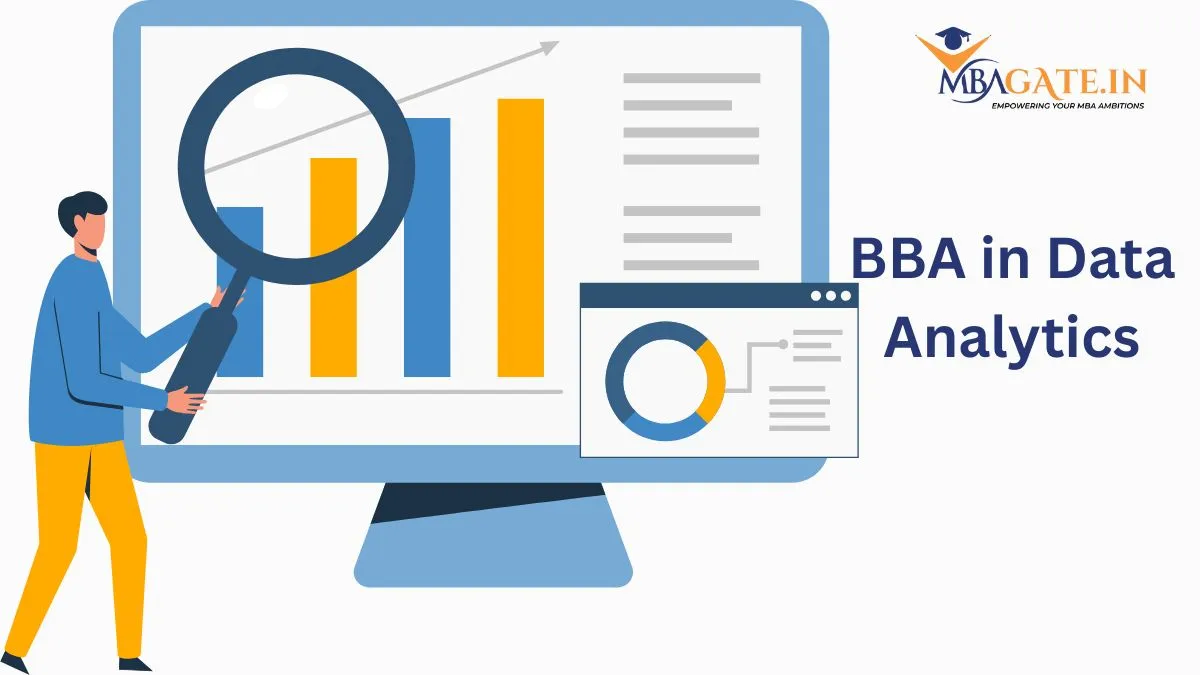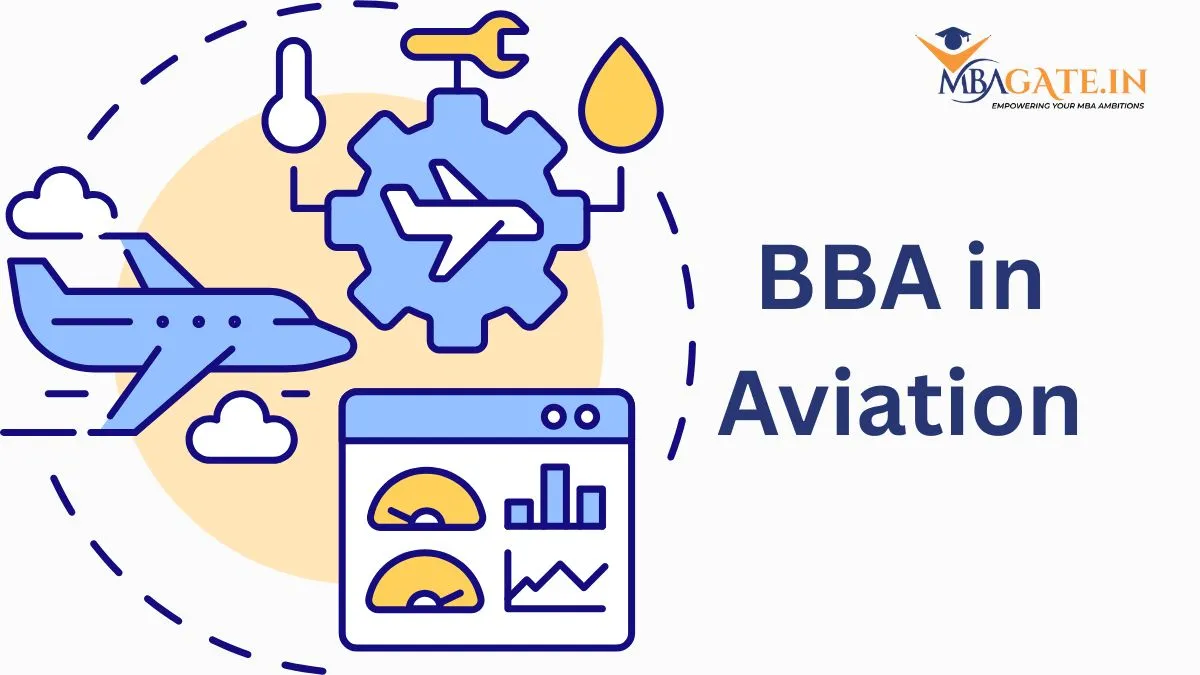BBA in Banking and Finance
Table of Content
-
- + more items Show less
This speciality is highly significant in the current education industry as a result of the greater need for finance professionals in all businesses. As digital banking, fintech and cross-border financial services continue to expand, there is a big demand for graduates with specialised knowledge of both traditional and innovative financial instruments. Banks, investment firms, insurance companies and consulting firms are recruiting active young professionals with a history of financial analysis, customer relations and decision-making. The course equips students with analytical thinking, problem-solving skills and digital finance. These are critically essential in today's workplace, where employers expect professionals to learn about technology and international financial standards.
Another essential part of this course is that it offers a broad spectrum of job opportunities. The graduates can opt for the careers of financial analysts, banking executives, investment advisors, loan officers, credit analysts, risk managers and so on. They can also prepare for competitive exams like MBA, CA, CFA and bank entrance exams to assist them in establishing a successful career. The BBA in Banking and Finance course provides a good mix of scholarly learning and professional skills, which is a favourite among commerce and business students.
The training also develops soft skills such as communication, teamwork and leadership that are critical in customer-facing careers in banking and finance. As digital payments and online banking become more prevalent, the course also trains students to handle cybersecurity threats, digital fraud and management of financial data. Interactions with internships, workshops and guest lectures by industry professionals enable students to gain real-life experience and learn about the latest industry trends.
Last but not least, a BBA in Banking and Finance is a good option for students who are interested in finance and want to be employed in the banking or financial industry. It provides a good academic background, practical training and job progression opportunities. In the rapidly progressing, technology-oriented financial era of the present day, this course is needed more than ever. It equips students with the skills to face the challenges of contemporary banking and financial services so that they can be employed and equipped for the future.
Features: Banking and Finance BBA
BBA in banking and finance is a three-year curriculum for undergraduate students. Candidates for admission to this degree must have completed class 12 with at least 50% marks from recognised boards and schools in any stream. Some colleges admit students via CUET UG, NPAT, DUET, IPMAT and other exams. However, other colleges admit students based on merit. After doing a BBA in banking and finance, candidates are hired for various job roles like Financial analyst, loan officer, investment banker, etc.
About BBA in Banking and Finance
BBA in Banking and Finance is a specialisation offered under the Bachelor of Business Administration that focuses on the banking sector and financial institutions. It is designed for students who are interested in knowing how banks, insurance companies and other financial institutions work. Both theoretical knowledge and functional skills regarding money management, loans, investments, financial markets and risk management are covered in the course.
Students gain knowledge on very important subjects like how banks extend loans, how interest is computed, how money can be invested safely, how customer accounts are handled and how financial laws and regulations are complied with.
The program also teaches contemporary topics like electronic banking, electronic payments and financial technology (fintech), which are very handy in the current digital age. It enables students to sharpen their analytical abilities, communication skills and business decision-making capacity.
Simply put, a BBA in Banking and Finance teaches students how to manage money effectively in the commercial world. It prepares them for positions in banks, finance firms, insurance companies and government financial agencies. It is a fantastic course for students who want to work in the financial business or who plan to pursue further education, such as an MBA in finance.
BBA Banking and Finance Course Subjects
A BBA in Banking and Finance is an undergraduate program that lasts three years. The coursework is separated into six semesters. BBA in Banking and Finance subjects include Marketing Management, Organisational Behaviour, E-Banking & Financial Services, Risk Management in Banking and many more.
Advantages of Doing BBA in Banking and Finance
Students interested in business and finance studies can benefit greatly from pursuing a BBA in Banking and Finance. Perhaps the greatest benefit is that it provides a sound understanding of financial principles, banking functions and business administration. Students are taught to interpret financial data, report writing and market trends analysis. These are skills applicable not only in the workplace but also to personal finance management in daily life. The course also addresses essential areas like online banking, financial laws and international financial systems, all of which have a very strong bearing in today's ever-changing world.
Another benefit is the variety of career choices that one can pursue once he or she gains this degree. The graduates can work as bank officers, financial analysts, investment advisors, credit managers or in fields associated with risk management, insurance and accounting. Private and government firms desire professionals with financial and banking experience. Some students prefer to start their own financial business or prepare for competitive exams for government or banking jobs.
The program also develops soft skills such as communication, teamwork, leadership and decision-making, all of which are critical in business. It provides confidence to students and prepares them for the real world. Internships, seminars and industry visits by some colleges are given to students, providing them with hands-on experience and exposure to how the finance and banking industries function.
Skill Development
Analytical Thinking
Upon the attainment of a BBA in Banking and Finance, the graduates acquire the ability to scrutinise financial data critically, read market trends and analyse investment prospects. Informed decision-making is necessary. The skill also comes in handy when progressing to careers like financial analyst, investment banker and credit officer.
Team and Leadership
Teamwork is highlighted in this specialisation through case studies and group projects and leadership. This sets the students up to handle teams and project leads and make strategic choices in their management roles.
Decision-Making
The students of BBA in banking and finance are taught to make sound, informed choices, particularly in times of pressure. From investment choices to approving credit, they are able to consider pros and cons, weigh alternatives and choose the best alternative.
Entrance Exam for BBA in Banking and Finance
Some colleges provide entrance tests for admission to BBA in Banking and Finance programs. These exams assess a student's proficiency in English, Math, Reasoning and General Knowledge. Popular admission examinations are CUET, SET (Symbiosis Entrance Test), IPU CET (Guru Gobind Singh Indraprastha University), NPAT (Narsee Monjee) and university-specific tests. Some institutions also admit students based on their Class 12 grades without requiring a test. Students can visit the college website to see if an entrance exam is necessary or not. Preparing well for the exam improves applicants chances of getting into a good college.
BBA in Banking and Finance: Eligibility Criteria
The BBA in aviation management is an undergraduate course; hence, the eligibility criteria for candidates to be admitted to this program are as follows:
Passing the 10+2 (Class 12) exam or an equivalent exam from a recognised board is considered an educational qualification. Students from various areas (science, commerce and arts) are encouraged to apply.
The majority of colleges accept at least 50% in 10+2. However, some universities offer a 5% relaxation to reserved category students.
Candidates must be between the ages of 17 and 25 at the time of admission (this may vary depending on the institute).
Some colleges or universities may administer their own entrance exams or take marks from well-known management exams. Others may award admittance only on merit.
English proficiency is the favoured option because English is the primary language of instruction.
Admission Process for BBA in Banking and Finance
BBA in Banking and Finance has the following admission process to admit candidates on the basis of their entrance exam and merit:
Initially, students need to check whether they meet the eligibility criteria, typically having passed Class 12 with a minimum of 50-60% marks.
Applicants are required to fill up the application form of the university or college that they want to join. It can be done online or offline, as preferred by the institute.
Take Entrance Exam (if applicable) Certain colleges offer entrance tests like CUET, SET, IPU CET or internal tests. The students need to register and appear for the exam.
Colleges release a merit list on the basis of either Class 12 marks or entrance test scores. Shortlisted candidates will move to the next round of the admission process.
A personal interview (PI), group discussion (GD) or counselling session is conducted by some institutions to check a student's interest and communication ability.
Shortlisted candidates have to submit documentation for verification, such as mark sheets, ID proof and photographs.
Last but not least, students confirm their admission by paying tuition fees and fulfilling other college-specific requirements.
BBA in Banking & Finance: Top Colleges in India
Sharda University, Greater Noida, Symbiosis University of Applied Sciences, NSHM Knowledge Campus Durgapur, West Bengal, and SAGE University Bhopal, Madhya Pradesh, among others, offer BBA programs in Banking and Finance. The fees and average salaries at these universities vary appropriately. The fees for these institutes range from ₹ 1.80 lakhs to ₹ 15.59 lakhs.
Career Prospects for BBA in Banking & Finance
A BBA in Banking and Finance offers a variety of job opportunities. These options prepare the candidates for future situations. Some of the well-known job titles for BBA in Banking & Finance are financial analyst, investment adviser, loan officer, credit analyst and risk manager. These profiles have varying job roles. The salaries for these job types vary depending on their level of responsibility. The following are the career options for a BBA in Banking & Finance:
Future Scope
Career Prospects: BBA in Banking and Finance students possess many career prospects in different industries. The banking business is one of the largest employers and BBA graduates can pursue careers in retail banking, corporate banking, investment banking, loan servicing and credit rating. Insurance companies, mutual funds and non-banking finance companies (NBFCs) employ BBA students.
Higher Education Area: A BBA in banking and finance is a suitable point for continuing education and building the applicant’s career. An MBA or PGDM in finance or banking can be pursued by graduates. A higher education of this nature offers clear managerial insight and leadership qualities, preparing individuals for top-level jobs in organisations.
Future Directions in Banking and Finance: The financial industry is undergoing fast transformation and it is essential to remain in the loop with respect to market trends. Fintech technology like digital banking, AI-based financial services, blockchain, mobile banking and cryptocurrencies are transforming banking processes and providing new career prospects.
FAQs
The job roles available after a BBA in Banking and Finance are:- Financial analyst, Loan officer, Investment banker, etc.
A candidate can opt for higher education like an MBA after completing a BBA in Banking and Finance. After doing a BBA in Banking and Finance, candidates have more chances to hold various job roles in various public and private banks.
In a BBA in Banking and Finance, internships are included. These internships provide students with hands-on experience in banking and finance. These internships enable candidates to apply their time management & discipline, communication skills and teamwork skills in real-life situations.
A BBA in Banking and Finance is a good starting point for a finance professional career. It provides expertise in banking, investments and risk management. Graduates can work as financial analysts or banking associates. They can pursue advanced studies such as an MBA, CFA or FRM for their career advancement.
No, math is generally not required for a BBA in Banking and Finance. Candidates from any stream can get admitted into the BBA in Banking and Finance course.
Yes, graduates can be able to work in investment banking after pursuing a BBA in Banking and Finance. A bachelor's degree in business, finance or a related field is usually a good starting point for a career in investment banking. Candidates need to learn more experience and qualifications to be very competitive in the industry.









